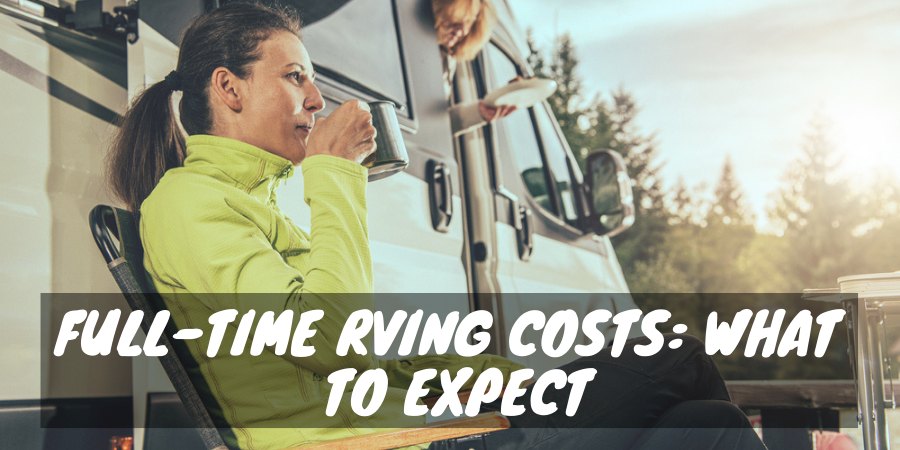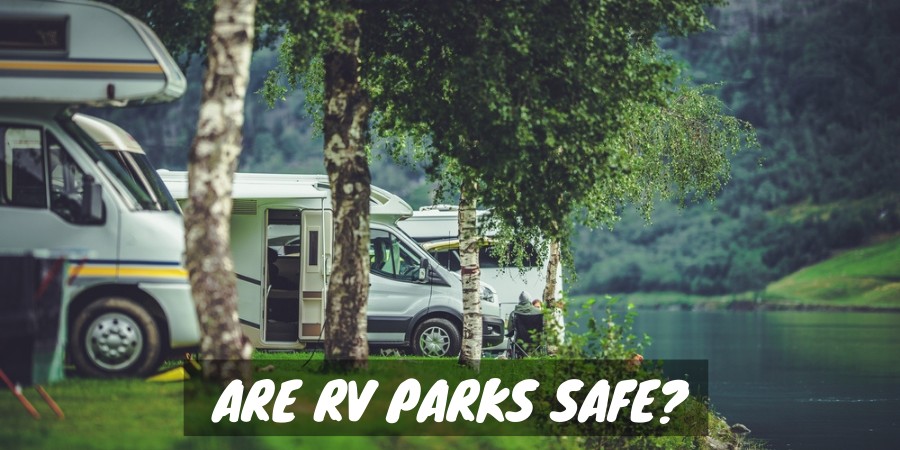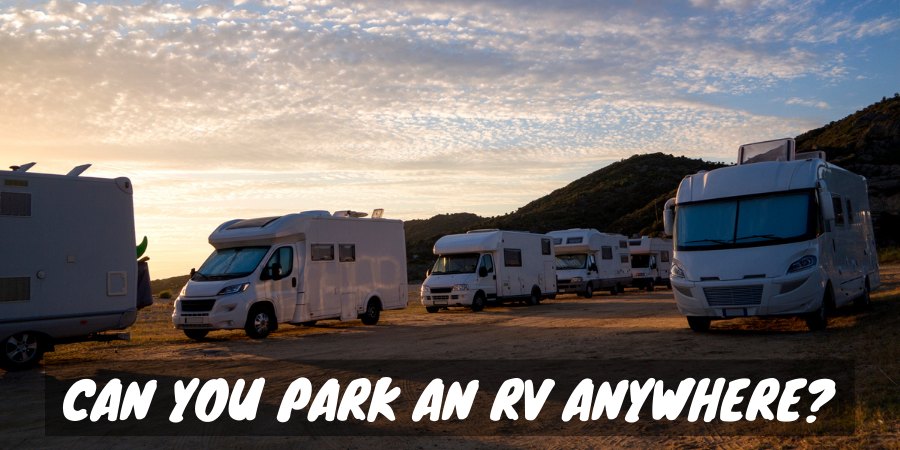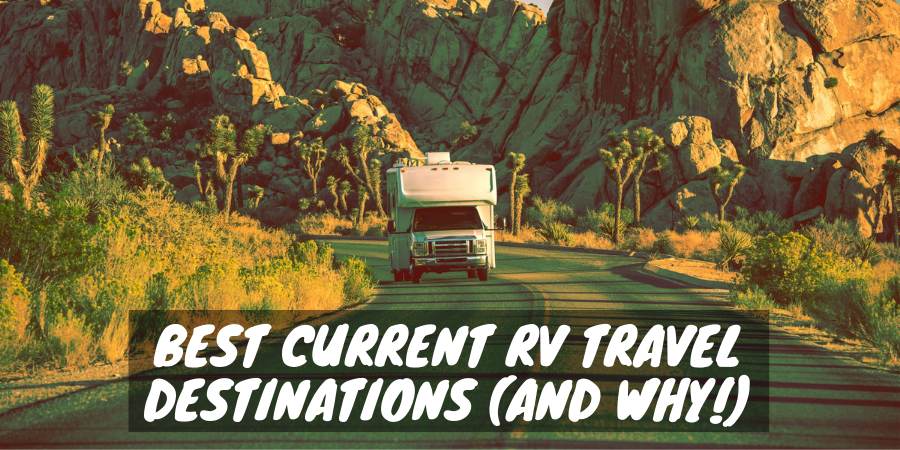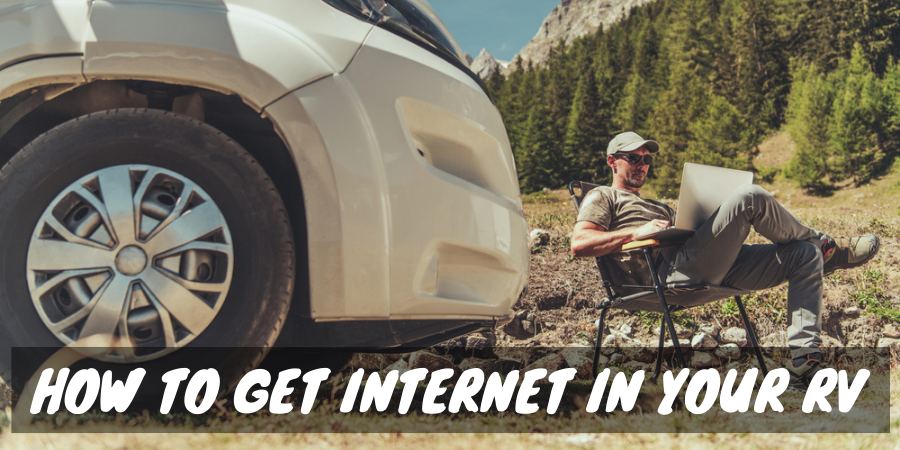Full-time RVing means open roads and an open wallet, as the average monthly cost for this lifestyle is around $2250.
Many RVers stay well below this benchmark, while others spend $5000 or more! Knowing your parameters is the key to sticking to a monthly budget so you can fulfill your RVing dreams.
Down below, I detail what it cost to full-time RV so you can see what ordinary expenses you’ll encounter and give you tips to help stretch your budget.
With over seven years (and counting) of RV full-timing under my belt, I think I have a good handle on what it cost to sustain this lifestyle, so stick around to find out more!
Full-Time RVing Costs: What to Expect
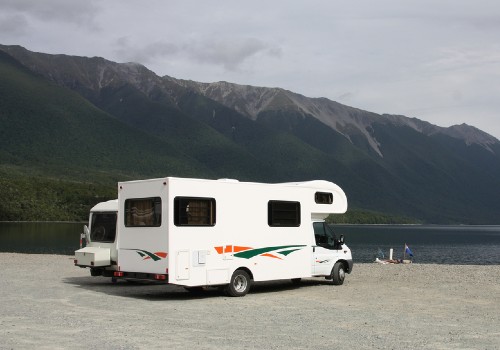
RVing full time includes these costs:
- Insurance
- RV Financing Payment
- Phone & Internet
- Campsite Rental
- Fuel, Propane, and Dump Station
- RV Maintenance
- Food & Entertainment
Newcomers to the full-time RVing lifestyle find it shocking that living in a camper often costs the same, if not more, as in a home or apartment.
Most monthly costs remain the same in an RV, but now you move your home from place to place.
With the right camper and attitude, you can easily find a way to RV full time on just about any budget, so let’s break down monthly RV expenses in detail.
Insurance Costs While RVing Full Time
Good insurance coverage protects your camper, car, tow vehicle, personal belongings, and your health.
Cost to Insure a Motorhome
The average price to insure a motorhome are:
- Class A – $80-$400 monthly
- Class B – $60-$120 monthly
- Class C – $80-$280 monthly
Newer motorhomes will require excellent comprehensive insurance and gap coverage to deal with depreciation in case of a total loss if you finance.
Cost to Insure a Travel Trailer
People with a car, SUV, or truck to pull a towable camper automatically have some coverage through their automobile policy, but it isn’t enough.
The catch is that the policy only covers damage your vehicle or travel trailer incur to other people’s property.
You’ll want to add a separate policy to cover damage to your trailer and belongings in an accident if you full-time RV. This extra protection runs about $25-$75 monthly.
Insider Tips For Lower RV Insurance Costs
If you haven’t made a camper selection, consider a Class B campervan that qualifies for a standard and more affordable automobile insurance policy.
Older-model-year campers also cost less to insure, but riders on the policy to cover extras will increase the premium.
Check out Geico’s website for more information about RV motorhome or travel trailer coverage options.
Most RV insurance policies only cover sporadic camping trips and not full-time use. Shop around for a company like Progressive or National General that’ll provide the 24/7 vehicle insurance coverage you need.
Also, if you plan to adjust your residency to an RV-friendly state, see if one state’s premiums are less for the same coverage.
Health Insurance Costs

The average person spends $452 a month on health insurance according to Lending Tree.
Depending on your health, age, coverage, and other factors, you can lower this amount drastically if you take the time to shop around.
Whatever you do, read the fine print of any policy before you commit to see if you’ll have access and coverage for the doctors or hospitals you may need wherever you plan to travel.
There’s no use paying high premiums only to get a bill for being out-of-network if you require care away from your home state. Check out RV Share’s blog on health insurance for more details on which companies to look into.
RV Financing Payment
If you purchase a newer RV, you’ll most likely have a monthly payment on the loan you’ll need to fit into your budget plans. According to The Savvy Campers, the average RV payment is $225-$650, even with long-length loan terms.
Use an RV loan calculator to figure out what a potential loan payment will be on different price campers if you haven’t bought one yet.
Full-time RV Phone and Internet Costs
The total average cost for a mobile phone and internet hotspot runs about $200 monthly.
Full-time RVers know that the “free” high-speed campground Wi-Fi rarely lives up to its name. Even paying for on-demand campground internet, such as Tengo, is no guarantee your connection will be fast or reliable.
If you work remotely, expect to budget around $100-$150 monthly for a wireless hotspot (the Verizon Jetpack is very popular) with enough data to complete your tasks.
Expect to budget another $50-$120 monthly for your mobile phone service.
Insider Tips For Lower RV Internet and Phone Costs
Depending on your needs, you can use your mobile phone data if you don’t want to pay for a Wi-Fi hotspot. Often you can work offline and only connect to ship off emails or projects as necessary.
To significantly lower your phone cost, consider skipping the expensive models and opt for an affordable pre-paid smartphone instead. My Verizon-plan phone works fine, and monthly plans start at $35.
You can also go old-school, like some of my RVing friends, and forgo a smartphone entirely, which will save even more cash.
Monthly Campsite Costs for RV Fulltimers
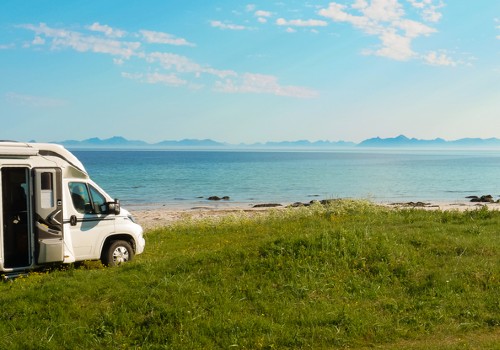
Expect to budget $500-$1500 a month for campsites on average. Personal comfort will dictate how much you spend.
Most RVers prefer a partial or full-hookup campground setting versus boondocking.
With an efficient RV solar and propane set-up, you can camp off-grid and never pay a campsite fee if that’s what you want.
With the average nightly rate for a campsite around $30 for water and electricity and $50 for full hookups, full-time RVers quickly learn that they can’t afford to move camp every few days without blowing their budget.
I take my overall monthly campsite budget and split it between campgrounds that cost $350-$1000 a month. By booking all my monthly reservations, I can see what I have left to spend on transition stays between the long-term reservations and when I’ll need to boondock.
Most private RV parks charge monthly guests for electricity on top of their campsite fee. I usually pay $20-$35 a month for power in my Class C, but my fifth-wheel neighbor with dual air conditioners will more likely be forking over $75-$100.
Tips to Lower RV Park Costs
Luckily for full-timers, most campgrounds offer cheaper weekly rates and greatly reduced monthly or seasonal discounts. For example, my favorite RV park charges $65 a night, $325 for the week, yet only $640 for the month.
Staying for an entire month in one location is a great way to stretch the budget and see all the local sights. You’ll also reduce fuel expenses by not moving your recreational vehicle.
State and national park campground rates are less expensive, but two-week maximum stays are the norm. The parks usually offer senior or military discounts that increase savings.
For example, my friends stay at a favorite national park campground for $13 a night with their discount, instead of $27.
Lastly, you can eliminate most campsite fees by taking on workamping gigs in locations that interest you. Most campgrounds, both public and private, hire full-time RVers to work anywhere from 12-40 hours a week in exchange for a free campsite, discounts on propane and electricity, and often additional hourly pay.
I always take on a workamping contract to stretch my budget, or if I’d like to stay in a particular location for several months.
Average RV Fuel, Propane, Dump Station, and Maintenance Costs for Fulltimers
RV Fuel Expenses
There is no general average for what you need to budget for fuel for either your motorhome or the tow vehicle that pulls your travel trailer.
Motorhomes get horrible gas mileage, but a heavy-duty truck pulling a 40-foot fifth-wheel also gobbles up fuel quickly.
The best way to figure out what you need to budget for fuel each month is to plot out your travel plans and find out how many miles you’ll cover. Divide total mileage by your RV’s MPG and get your estimate.
What are the best ways to save on RV fuel costs?
Reducing how often you travel between campsite locations greatly reduces fuel expenses, which is another reason to choose monthly stays over weekly or less.
Choose campgrounds where you can walk or ride a bicycle to grocery stores and local attractions.
Using an app, like the Gas Buddy Trip Calculator, can be very helpful to figure fuel costs. Input your actual camper or tow vehicle/travel trailer’s MPG stats to get the results, and as a bonus, it lists the cheapest locations to score fuel.
A smaller, lighter camper will always use less fuel, so consider a shorter RV, and always pack as light as you can.
If you have a large motorcoach, tow a fuel-efficient car to explore locally.
Lastly, group your itinerary. Don’t drive 400 miles to one RV park, only to backtrack 250 miles to visit another.
I often travel 30 miles or less between campground locations and still find new things to explore.
Average RV Propane Expenses
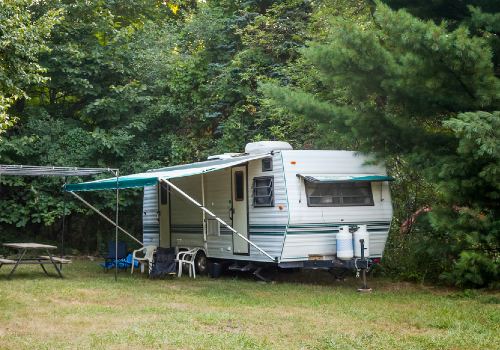
Want to Connect With a Community of Over 1,078 RV Enthusiasts?
I have no propane in my RV, but the average couple spends around $20 a month on propane.
RVers that love to boondock use more propane versus those who use a campground’s electricity to power the furnace, fridge, or water heater.
If you have dual-fuel appliances, it’s typically cheaper and more efficient to run them off electricity than propane, so plug in to save.
Average RV Dump Station Expenses
Not every campsite will have a sewer connection, so dumping your RV waste tanks may involve a trip to a communal location like a truck stop, travel center, or a public or private campground.
Some places charge $5-$10 for a dump fee, but having to pay to dump your waste tanks is rare and not worth adding to your monthly expense list.
RV Maintenance Budget Shocker
Put aside a minimum of $200 a month into your recreational vehicle maintenance fund because sooner or later, you’ll be glad you did.
A storm could tear your awning, you need an oil change, or it’s time to recoat your roof membrane or replace all the tires.
Having funds on hand to maintain your camper is crucial because it’s much cheaper and easier to DIY the small things immediately than waiting weeks to get your RV into an expensive service center.
Laundry Expenses for Full-Time RVers
You’ll undoubtedly want clean clothes, but most RVs don’t come with a washer and dryer, so you’ll need to budget for the laundromat.
Most RVing couples spend $30-$40 monthly on laundry. Families or RVers with pets will average $50-$80 a month for laundry.
For some, it’s much more economical and time-efficient to install a combo washer/dryer in their camper if space and weight allow.
Is there a way to save on RV laundry costs?
Yes, I reduce my laundry bills by bypassing the dryer whenever I can. I hang clothes outside to dry on my ladder clothes rack.
For lightly worn clothing, hanging items in the sun for an hour or two refreshes the fabric so you can wear it several times before it needs a wash.
Food and Entertainment Costs While Full-Time RVing

RV Food Expenditures
Polling my RVing friends shows that most couples spend $75-$150 weekly on food and general items like laundry detergent or toilet paper.
Most of us agree we spend roughly the same on groceries and eating out as we did living in a home or apartment, so use that as a guide to set your food budget.
Entertainment Budget
Entertainment is another vastly ranging expense, with some friends enjoying free or low-cost activities each month.
In contrast, other full-timers spend $1000 going to every show, museum, thrill park, and shopping center in the area.
Entertainment and food are the easiest areas to cut corners for a month or two to get your budget back on track.
Cook more affordable meals, or don’t eat out. Put $80 toward a national park pass that gains you entry to hundreds of hiking trails and outdoor activities for a whole year instead of spending the same amount to see a single movie with popcorn, candy, and a drink.
Are RV campground memberships worth it?
Most campground memberships have too many restrictions to make them worth the yearly cost. You may find you can only get the 50% discount for the first night of a mandatory three-night stay or that there are no participating campgrounds in your area.
While $30-$40 doesn’t seem like much, the overall cost adds up, especially if you carry three or four memberships you rarely use.
Final Thoughts
Every RVer can fit their camping style and income level into a full-time life. Now that you know what expenses are typical, you can formulate a budget best for you.
Where do I fit into the average monthly cost to full-time RV? I spend $1400-$1800 when not workamping, and around $600 when I do.
There’s a full-time RV life waiting, so set your budget, start planning, and join our wonderful community!
"Man cannot discover new oceans unless he has the courage to lose sight of the shore."
-- Andre Gide

